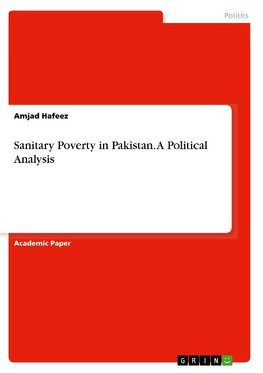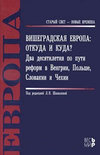
-
 Anglický jazyk
Anglický jazyk
Sanitary Poverty in Pakistan. A Political Analysis
Autor: Amjad Hafeez
Academic Paper from the year 2019 in the subject Politics - International Politics - Topic: Miscellaneous, grade: 3.8, University of Cambridge, language: English, abstract: This academic paper analyses the Sanitation Poverty in Pakistan. Pakistan's population... Viac o knihe
Na objednávku, dodanie 2-4 týždne
14.76 €
bežná cena: 16.40 €
O knihe
Academic Paper from the year 2019 in the subject Politics - International Politics - Topic: Miscellaneous, grade: 3.8, University of Cambridge, language: English, abstract: This academic paper analyses the Sanitation Poverty in Pakistan. Pakistan's population is 207 million people. 22 million people do not have access to clean water. While 79 million people don't have a decent toilet. Nearly 19,500 children under 5 die each year from diarrhoea, which is caused by dirty water and poor toilets. Poor WASH facilities are linked to diarrhoea among children below age of 5. Diarrhoea causes immediate weight loss, intestinal damage and nutritional malabsorption among children below age 5, and one of the contributing factors towards malnutrition and stunting among children.
The stunting rate for Pakistan is 45% in children under 5. Households with lower incomes and poverty have poor sanitation facilities. Along with that, social and cultural aspects also contribute towards open defecation. Domestic animals are one of the major sources of livestock which contributes approximately 56% of value addition in agriculture and nearly 11% to the gross domestic product. Livestock waste is often found within rural households. Animal dung is also used as fuel for cooking purposes. Therefore, problem tree analysis links sanitation issue with cultural, social and economic factors, resulting in poor health conditions, malnutrition and stunting in children. There have been interventions from international organizations and Government of Pakistan, which has improved the sanitation situation between 2000 and 2015.
However, these have not been able to provide satisfactory results. Resultantly, Pakistan is still among top 10 worst countries in the world on sanitation services list. Political Economy analysis of the situation suggests that weak institutional structure at third tier of governance and non-participatory approach of local councils combined with the lack of enough finances have been major hurdle in eradication of this issue. Therefore, it is important that involvement of district governments in all interventions through village and union councils is ensured along-with possible taxation for sanitation services to collect revenue. This approach will bridge the institutional and financial gap to solve the crisis.
- Vydavateľstvo: GRIN Verlag
- Rok vydania: 2019
- Formát: Paperback
- Rozmer: 210 x 148 mm
- Jazyk: Anglický jazyk
- ISBN: 9783668990340







 Nemecký jazyk
Nemecký jazyk 
 Ruský jazyk
Ruský jazyk 



